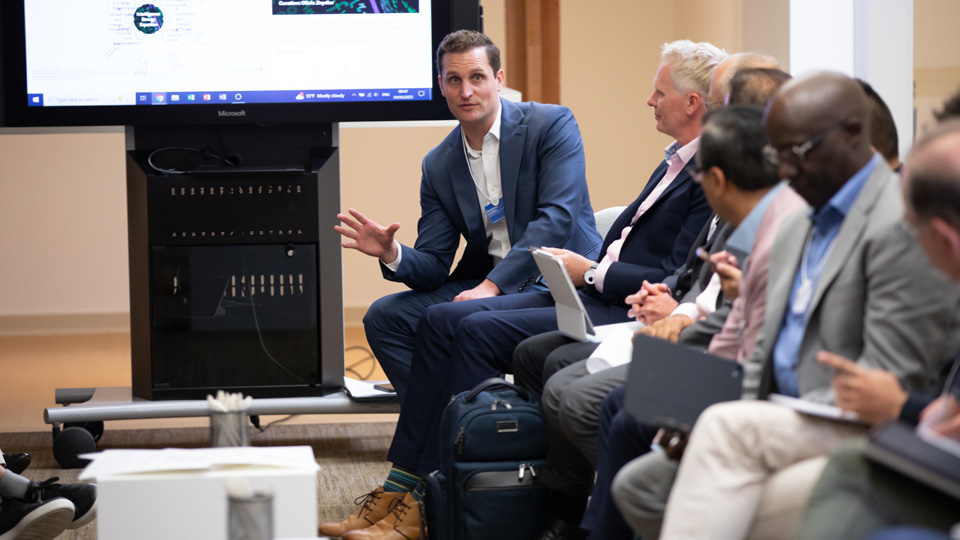Held over three days, the world-renowned retreat provides a unique platform to align innovation with global priorities. Professor Jackson was invited to serve as the facilitator of a key strategy session titled: ‘The Intelligence Energy Equation.’
The high-level, boardroom-style discussion related directly to the WEF’s AI Energy Impact Workstream, focused on the ‘AI Transformation of Industries’. This programme is centred on applying artificial intelligence to reshape value chains, unlock new business and operating models, and drive responsible, sector-specific innovation, efficiency, and growth.
The results of the discussion facilitated by Professor Jackson built on the pioneering white paper: ‘Artificial Intelligence’s Energy Paradox: Challenges and Opportunities’ launched earlier this year at the WEF Annual Meeting in Davos. This paper highlighted the cutting-edge work of Professor Jackson and his colleague and co-founder of the Digital Decarbonisation initiative, Professor Ian Hodgkinson.
